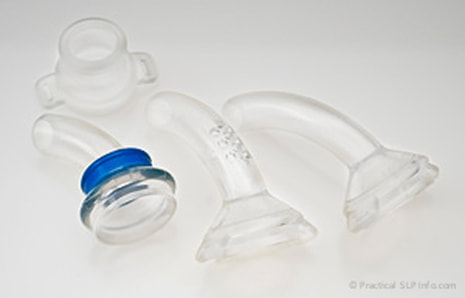Why am I coughing so much mucous?
Coughing as a neck breather means anything you should expel air from your lungs through your stoma. Although you are accustomed to covering your mouth when you cough, you will learn instead to cover your stoma. Initially following surgery and for several weeks thereafter, you will cough a great deal of mucous and secretions from your lungs. The lungs are increasing the output of secretions and mucous in response to the changes in you anatomy and physiology. Regular application of the HME assist with restoring normal lung function by delivering the filtered and humidified air the lungs are accustomed to. Over time with regular HME application, the secretion production will slow down.
Many patients are concerned to see, despite regular HME application and sufficient healing from surgery, they continue to cough mucous from their stoma. It should be stressed that that lungs normally produce mucous in healthy, non-laryngectomized people as a protective layer to help keep lung tissue moist as well as to serve to trap inhaled particles that may be harmful to lung tissue. In a non-laryngectomized patient, these secretions are coughed frequently during the course of a normal day and typically swallowed. Following a laryngectomy, however, these secretions must be expelled from the stoma and wiped away. Having to more directly manage these secretions can easily lead one to believe there is “more than normal” production, when in fact, this is a healthy lung function. It is important to remember this is quite normal, although your doctor or SLP may be able to offer suggestions for improved secretion management if it seems atypical.
why coughing increases
When do I use my Larytube?
The Larytube is designed to stabilize the stoma, particularly during the post-operative recovery and healing phase following surgery. Using the Larytube ensure the airway is maintained, even in the presence of healing tissues and potential post-op inflammation and swelling. Typically speaking, this should be worm 24/7 until indicated otherwise by your doctor or speech pathology staff. Often times, the speech staff will “wean” you off the Larytube, seeing how well you do without it. Most patients, following sufficient post-operative recovery time, do not need to use the Larytube.
There are cases, however, where a patient has a stoma that shrinks spontaneously when left without a tube. In those cases, the Larytube may be used regularly, despite adequate and normal post-operative recovery. The speech pathology staff will determine if the Larytube is necessary for regular use or note.
Why can’t I have anything tied
around my neck?
If you have been told “no ties” around the neck, this usually means you have undergone flap reconstruction as part of your surgery.
A “flap” is a term meaning there is a portion of tissue that has been transplanted from a different part of the body. Although there are different types of flaps, the primary concern here is that transplanted tissue be allowed to heal and thrive in its new location on the body. Any time there is tissue attached to other tissues (as with any incision seams in a surgery), healing is always the biggest concern. In order for tissues to heal together well though, there needs to be an adequate blood supply to the area. It is the blood supply that delivers the oxygen that tissues need to live and survive. Without proper blood supply, the tissues will die. Ties around the neck, regardless of how loose, have the potential for acting like tourniquet, and interfering with adequate blood flow to the newly transplanted tissue.
Why can’t I smell?
Following a laryngectomy, the sense of smell, or olfaction, remains intact. In a standard laryngectomy surgery, there is no impact from the surgery to the nerves of olfaction that allow for smelling scents, aromas and odors. What has changed, however, is the pathway of airflow during respiration. Prior to the laryngectomy, air would flow into the body through the nose and mouth. This movement of air through the nose allowed for scents and aromas to be detected as the smells came in contact with the tiny nerve endings in the nose that are responsible for the sense of smell.
The “polite yawn technique” has become a standard in helping laryngectomees regain their ability to smell.
See Smelling After a Laryngectomy.
Why can’t I taste my food like I used to?
Because there is no longer any air flowing through the nose after the laryngectomy, you will notice a change in your sense of smell and taste. Your ability to smell will be exactly the same as before the surgery in that the nerves, senses and structures involved in smelling will not be changed in any way. Without the flow of air through the nose, however, the capacity to smell changes. In order to smell scents, odors and aromas around us involves having air pass through the nose, carrying small particles into the nose where they are detected by sensory cells in the nose which are then interpreted by the brain and translated into “smells.” Since no air will be flowing through the nose after your surgery, it will seem as if you can no longer smell things like you could before. Many laryngectomees find it helpful to use their hand to “waft” air into their nose when they attempt to smell. The speech pathology staff will also teach you a technique which will allow you to draw air through the nasal passages and assist with smelling. See Smelling After a Laryngectomy.
Similarly, because our sense of taste is strongly related to our sense of smell, you will notice that foods may no longer taste the way they did before the surgery. The tongue is able to detect five basic tastes: sweet, sour, salt, bitter and savory. Our sense of smell adds to the taste of our food and allows us to recognize the difference between steak and pizza, for example. Once you start eating after surgery, you will notice that your favorite foods may taste quite different from what you remember.
To experience what this is like, a non-laryngectomized person can place a jellybean in their mouth, first holding the nose shut. Chew the jellybean as normal. You will notice the sweetness, but the flavor (orange vs grape for example) is impossible to tell. Then release the nose and inhale. Suddenly, the flavor becomes obvious. This ability to inhale through the nose is lost, and accounts for the notable change in taste following surgery.
My doctor says I have a “flap” and I can’t have anything cold to eat or drink. Why?
A “flap” is a term meaning there is a portion of tissue that has been transplanted from a different part of the body. Although there are different types of flaps, the primary concern here is that transplanted tissue be allowed to heal and thrive in its new location on the body. Any time there is tissue attached to other tissues (as with any incision seams in a surgery), healing is always the biggest concern. In order for tissues to heal together well though, there needs to be an adequate blood supply to the area. It is the blood supply that delivers the oxygen that tissues need to live and survive. Without proper blood supply, the tissues will die.
Cold temperatures have an effect on blood vessels that causes them to constrict. This is one reason we use ice on injuries to prevent swelling. So, when there are newly transplanted tissues in the throat, it is very important the new tissue be allowed to attach well and heal thoroughly. If you eat or drink cold food/drink items, this can serve to limit the blood flow to the area trying to heal. If your doctor limits your cold intake after surgery, it is very important to stick to this guideline to ensure you heal properly following surgery. Not doing so may mean serious complications for you and perhaps even more surgery to repair the throat.


